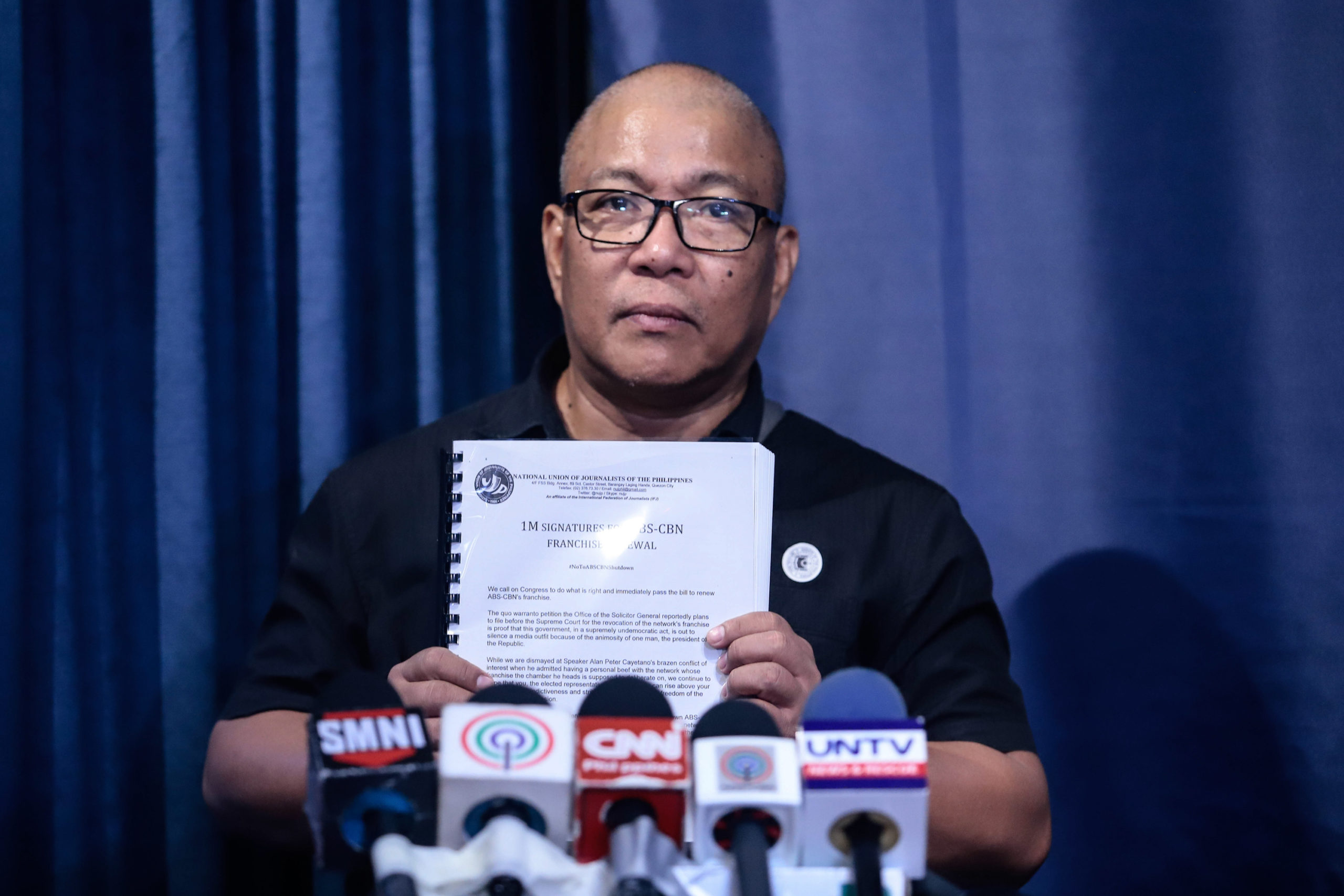Journalist, ex-NUJP chair Nonoy Espina writes 30

Nonoy Espina. PRIB Photo
Filipino journalists remembered Jose Jaime “Nonoy” Espina, 59, who passed away Wednesday night, as one of the country’s strongest defenders of press freedom—a media everyman whose legacy loomed larger than life.
His sister, Inday Espina-Varona, revealed in a Facebook post that Espina had also “survived a severe infection of COVID-19,” but ultimately passed away after a bout with liver cancer.
She said the family will have a private inurnment in Bacolod City, their hometown. His remains are in Bacolod City, which is under general community quarantine.
“A few days ago, Nonoy was able to enjoy sitting in front of the organ to hear family make some music,” she said. “That music was something he looked forward to.”
Espina—or “Nonoy,” as he was fondly called—was one of the founding members of the National Union of Journalists in the Philippines (NUJP), a lateral guild for the Filipino working press. He was also a former senior editor for news websites Inquirer.net and, later, Interaksyon, where he advocated for better working conditions for media workers.
During martial law, he was a member of alternative media organization Cobra-ANS and an editor for the local Courier.
“Like many journalists, he was materially poor. But in his devotion to the profession and our people, he was, as Danny Fabella sang, ‘hindi pangkaraniwang tao’ (no ordinary man),” Espina-Varona wrote. “To his last breath, he waved that banner. Patriot, journalist, loving husband, father and brother, you will not be forgotten.”
Tireless champion
Throughout his working life, Espina was a tireless champion for press freedom and the welfare of media workers—both pressing issues in one of the deadliest countries in the world for journalists.
Because of this, Espina was often targeted, harassed and even Red-tagged by state agents under the Duterte administration, who claimed he was a Communist propagandist seeking to overthrow the government.
But for many Filipino journalists, he was a leader and a mentor who had helped improve working conditions in the industry. Being himself a Visayan community journalist-cum-editor, Espina also advocated for provincial journalists, who often work under worse conditions than their Manila counterparts: lower wages, poorer security of tenure, and a more hostile, fatal environment to critical reporting.
Shortly after his passing, the NUJP thanked their former chair for “his long years of service to the union and the profession,” and promised to “honor him by protecting that prestige.”
The Foreign Correspondents Association of the Philippines remembered Espina for always standing “at the front-lines of the fight against media repression and harassment,” especially during the fight for, and eventual rejection of, ABS-CBN’s franchise renewal.